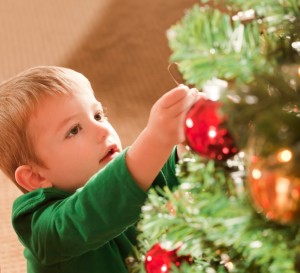 The holidays can be a particularly blue time of the year for people, including children and teenagers. The darker days of winter can bring about a gloomy mood and the hype of the holidays can set unrealistic expectations for children. There are many reasons children may feel sad or anxious around the holidays, including added stress around having to be with one or the other parent (not both), in cases of divorced families, or coping with the loss of a loved one who recently passed away.
The holidays can be a particularly blue time of the year for people, including children and teenagers. The darker days of winter can bring about a gloomy mood and the hype of the holidays can set unrealistic expectations for children. There are many reasons children may feel sad or anxious around the holidays, including added stress around having to be with one or the other parent (not both), in cases of divorced families, or coping with the loss of a loved one who recently passed away.
To help kids cope with sadness around the holidays, Dr. Elizabeth McCauley, associate director of Seattle Children’s Child and Adolescent Psychiatry, offers some advice on how to keep those blues at bay.
“People have high expectations around the holidays,” said McCauley. “And sometimes those expectations are too high for what the holidays will bring. You get a mental image that things are supposed to be perfect, like in a storybook. But the reality can be more down to earth.”
Set realistic expectations
McCauley advises parents to incorporate kids in holiday planning to help set realistic expectations for holiday events. Kids can become disappointed when things don’t live up to what they’ve imagined, which can trigger sadness.
“Establish expectations that fit in with your family’s interests and budgetary constraints,” said McCauley. “Have open conversations about the hype of the holidays versus reality. Acknowledge if you are not able to plan a special trip or purchase as many gifts this year. Get kids involved in planning activities so they have something to look forward to while they’re out of school for the holidays.”
Make a plan for the holidays
McCauley also recommends incorporating some structure into the holiday break.
“Transitioning from school to the holiday break can be difficult for children who are used to their normal routine,” said McCauley. “Structure is great for many children and can reduce worry. Knowing what events are coming up gives children and adolescents a useful heads-up so they know what is expected. They should also be encouraged to let parents know about things they want to do with their free time.”
Incorporating structure into the holidays doesn’t mean children can’t have fun during their break. Bake cookies or play board games, says McCauley. The simplest of activities can be the most fun. Also, try to incorporate activities that focus on giving rather than receiving.
“Plan an activity that will give a child a sense of joy from giving,” said McCauley. “It’s great to involve kids in activities that allow them to make a donation, or volunteer their time, as opposed to focusing on what gifts they will receive.”
When it’s something more than feeling blue: Signs and symptoms of depression
Holiday blues are normal, according to McCauley. There is, however, a difference between holiday blues and depression.
Depression is a problem that many children and teens face. Depression is the most common mental health problem in the U.S. Each year, depression affects 17 million people of all ages, races and economic backgrounds. As many as one in every 33 children may have depression; in teens, that number may be as high as one in eight. Depression can affect children of all ages.
Depression can occur for many reasons – family conflict, school pressures or problems with peers. There is no single cause of depression. For parents, it’s important to differentiate when a child is feeling a little blue versus experiencing depression.
When feeling sad or withdrawn for more than two weeks gets in the way of a child’s or teen’s ability to function in school, at home or in social settings, McCauley recommends talking to a healthcare provider. She said it’s also critical to talk to a healthcare provider immediately if a child or teen has thoughts of self-harm. Other signs and symptoms of depression in children and teens include:
- Sadness or feeling irritable
- Loss of interest or pleasure in usual activities
- Eating too much or too little
- Weight changes
- Sleeping too much or too little
- Feeling tired a lot
- Feeling guilty
- Trouble thinking or paying attention
- Suicidal thoughts or behavior
The holidays can be a very fun and exciting time of the year. It’s normal to experience an occasional sense of sadness, but learning to talk through those feelings and setting realistic expectations for the holidays can help make this season the happiest time of the year.
Resources:
- Understanding Depression
- Seattle Children’s Psychiatry and Behavioral Medicine
- Parents Guide to Teen Depression

